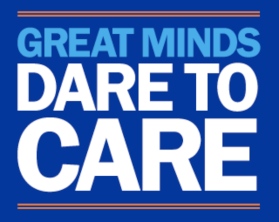
Supporting a Suicide Attempt Survivor
SHU 24/7 Mental Health Crisis Hotline: 973-275-Help (4357)
Call or text 988 to contact the Suicide and Crisis Lifeline or chat online at 988lifeline.org.
Or text Talk to 741-741 for the Crisis Text Line.
If you are in immediate danger, call 911.
When someone you love has tried to take their own life, it evokes a range of emotions that may include anger, sadness, and fear. It may feel as if you survived a trauma. That’s why it’s critical to take care of your own mental health in order to be ready to support your friend or family member. Mental Health First Aid recommends incorporating the following five elements into your self-care plan:
- Taking care of physical and psychological health
- Managing and reducing stress
- Recognizing emotional and spiritual needs
- Fostering and sustaining relationships
- Achieving balance in different areas of life
CAPS is Here for You
You can contact CAPS during regular office hours, Monday-Friday 8:45 a.m.- 4:45 p.m. by calling 973-761-9500 or drop-in to CAPS in Mooney Hall Room 27 to speak with a
counselor. Do not use e-mail in an emergency situation. If you have an urgent need
to speak with a counselor you may also contact the SHU 24/7 Mental Health Crisis Hotline at 973-275-Help (4357). This service is available 24 hours a day/7 days a week.
You can also contact The Suicide and Crisis Lifeline by calling 988 or chat with them online. The Crisis Text Line is also available. Text SCHOOL to 741-741.
What You Can Do to Support Your Loved One
The most important thing you can do is be with them.
Your loved one will need you in the immediate weeks. Be with them in person whenever possible. If you can’t physically be there, use video calls to connect.
- Help them make a safety plan. You can find templates and help them create the plan. Here is a template from the Suicide & Crisis Lifeline and there are others available in this guide.
- Encourage your loved one to talk to a therapist or counselor.
- Remind them that nutrition, exercise and good sleep are critical to recovery.
- Find ways you can provide support, such as reducing their workload by cooking meals or helping with chores. Help them find ways to socialize with supportive people.
- Stress the importance of self-care and relaxation activities, such as meditation, spending time in nature, and listening to music that helps their mood.
- Help make their environment safe by removing or storing weapons, pills or anything that can be used for self-harm.
Adapted from the American Foundation for Suicide Prevention
Don’t forget, talking about suicide openly reduces suicidal ideation, so don’t be afraid to ask “are you thinking about suicide?”


